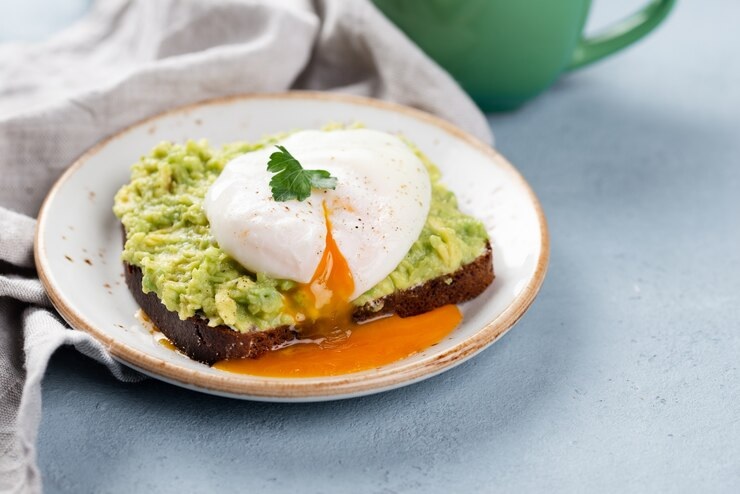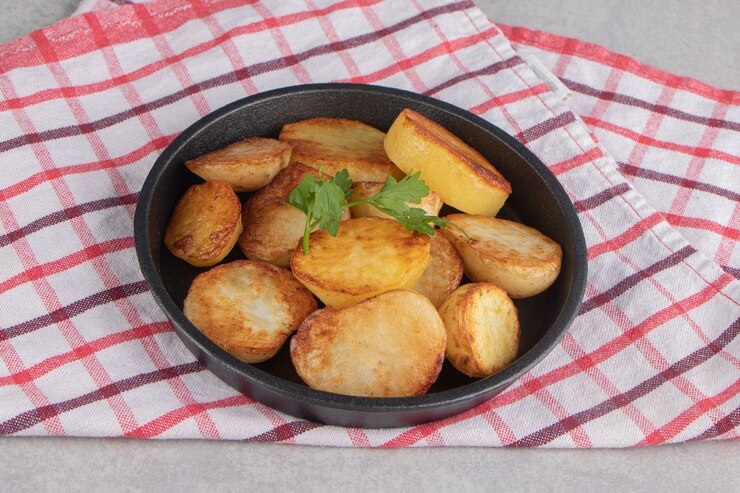According to a recent study published in Computers in Biology and Medicine, men and women may benefit from different types of breakfasts when aiming for weight management. The research suggests that men’s bodies are better equipped to process energy from high-carbohydrate breakfasts in the morning, while women respond more favorably to meals higher in fat. This difference appears to be rooted in metabolic variations between the sexes.
“Men and women respond differently to high-carbohydrate and high-fat breakfasts,” explains study author Stephanie Abo, a PhD candidate in applied mathematics at the University of Waterloo. “These differences in metabolism can influence weight management and support weight loss.”
To reach these findings, the researchers used mathematical modeling to analyse how male and female bodies react to high-fat versus high-carbohydrate breakfasts. The study also highlighted that women tend to rely more on fat for energy after fasting, whereas men favor carbohydrates. Consequently, women may benefit from a breakfast rich in healthy fats — such as eggs with avocado—while men may experience better results with carbohydrate-focused options like oatmeal and fruit.

To investigate further, researchers developed a model to simulate how the metabolism of a healthy young adult male and female would respond to a high-carb or high-fat meal after a 12–14 hour fast (overnight). By analyzing existing data, they assessed the potential impact of these meals on various organs and tissues, including the brain, heart, muscles, liver, and fat tissue.
The model revealed that men and women metabolize fats and carbohydrates differently. Women break down about 20% more fat in their fat tissue, which raises glycerol (sugar) levels in the bloodstream for the liver to utilize as energy. In contrast, men primarily rely on glucose stored in muscles and the liver, drawing on these energy reserves more readily.
This research highlights how understanding individual metabolic needs could optimize breakfast choices, potentially enhancing weight management and overall health.

Power of the right breakfast
When it comes to weight loss, breakfast can be a powerful source. Starting the day with the right foods can set the tone for healthy choices, stabilize blood sugar, and even curb mid-morning cravings. However, breakfast for weight loss isn’t about skipping meals or relying on restrictive options. It’s about fueling your body with a balance of nutrients that support metabolism, sustain energy, and help control hunger. Dr Sweta Panchal gives away some tips on how men and women can make their breakfasts work for their weight-loss goals.
The importance of protein and fibre
High-protein, high-fibre breakfasts are excellent for weight loss because they keep you full for longer and reduce the likelihood of snacking on high-calorie foods later in the day. Protein helps stabilize blood sugar and maintains muscle mass, which is essential for a healthy metabolism. Fibre, on the other hand, slows down digestion and helps you feel full.

Balancing macronutrients for men and women
For women: Women generally require fewer calories than men, so focus on nutrient-dense, lower-calorie options that prioritize quality over quantity. Try combining eggs with sautéed spinach and whole-grain toast, or a smoothie with spinach, a handful of berries, Greek yogurt, and a spoonful of chia seeds.
For men: Men may need higher-calorie breakfasts, especially if they have higher muscle mass or are engaging in intense physical activities. Adding a slice of whole-grain toast with avocado, a boiled egg, or a protein smoothie with oats can help keep energy levels steady without overdoing calories.
Low-Glycaemic carb options
Whole-grain toast: Swapping white bread for whole-grain provides fibre and keeps you fuller longer.
Quinoa: A protein-packed grain that can be used as a base for a savory breakfast bowl.
Sweet potatoes: Roasted or boiled sweet potatoes are a nutrient-rich, fibre-filled option for a balanced breakfast.

Incorporating healthy fats
Healthy fats are a crucial component of a balanced breakfast. They increase satiety and slow down digestion, which helps manage appetite. Avocado, nuts, and seeds are all excellent options. However, be mindful of portion sizes, as fats are calorie-dense.
Sample breakfast ideas for weight loss
Egg and veggies scramble: Whisk together eggs with a variety of veggies (spinach, peppers, onions) and cook in olive oil. Serve with a slice of whole-grain toast.
Greek yogurt parfait: Layer Greek yogurt with fresh berries, chia seeds, and a handful of almonds for a protein-rich, fibre-filled meal.
Oatmeal bowl: Prepare oats with almond milk, add a scoop of protein powder, top with sliced banana, berries, and a sprinkle of flaxseeds.
Avocado toast with eggs: Spread half an avocado on whole-grain toast and top with a poached or boiled egg. Add a sprinkle of chili flakes or spices for flavor.

Timing matters:
Eating breakfast within an hour of waking up helps kickstart metabolism. If you’re not used to eating early, try a lighter option like a smoothie or a small bowl of yogurt with fruit, then gradually add more nutrient-dense foods as your appetite adjusts.
Breakfast mistakes to avoid
Skipping breakfast: Skipping breakfast may seem like an easy way to cut calories, but it can lead to increased hunger later, making it harder to control portion sizes and snack choices throughout the day.
Relying on sugary options: Avoid high-sugar cereals, pastries, and breakfast bars, as they can cause blood sugar spikes followed by crashes that leave you craving more.
Eating only carbs: A carb-only breakfast (like plain toast or a bagel) won’t keep you full. Always pair carbs with protein and healthy fats for balance.
Read More:



